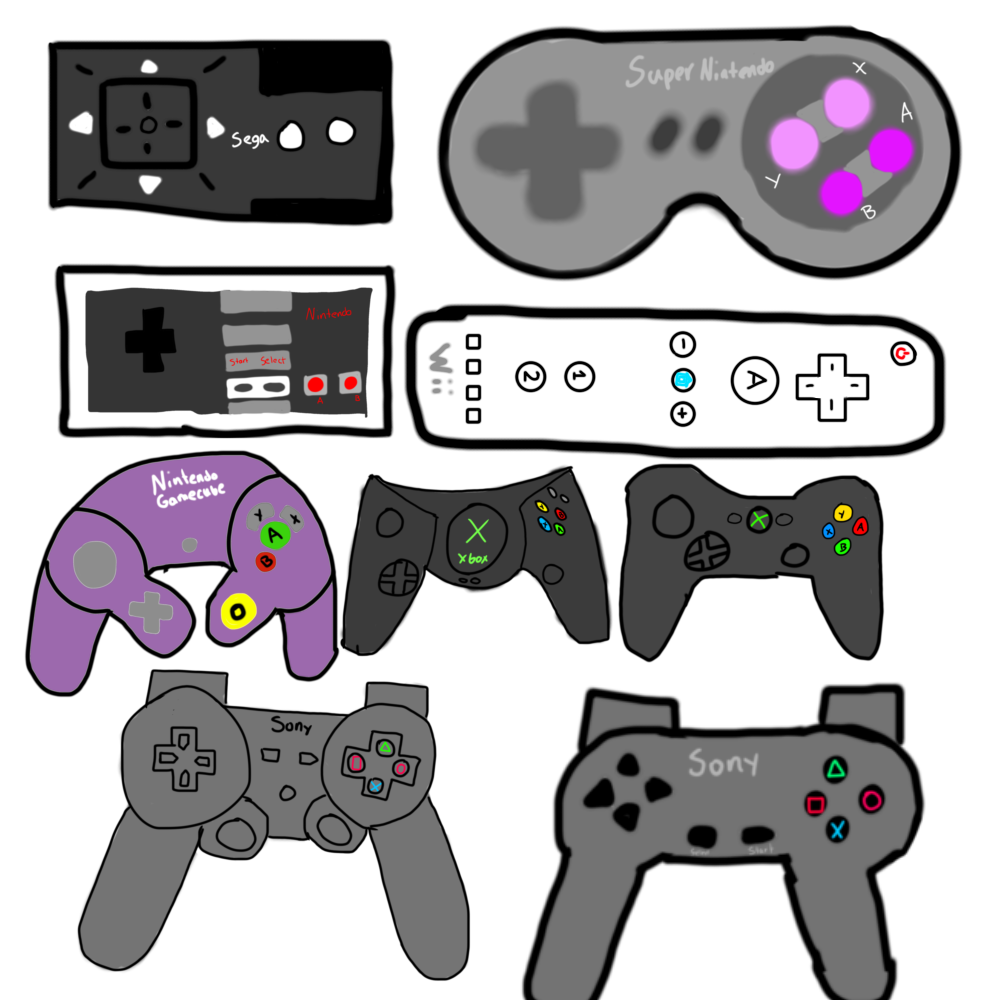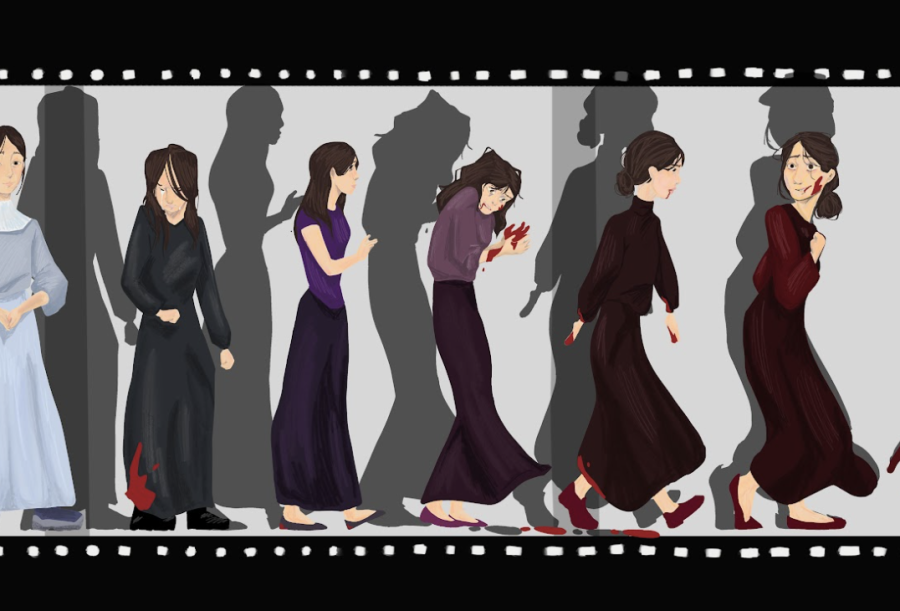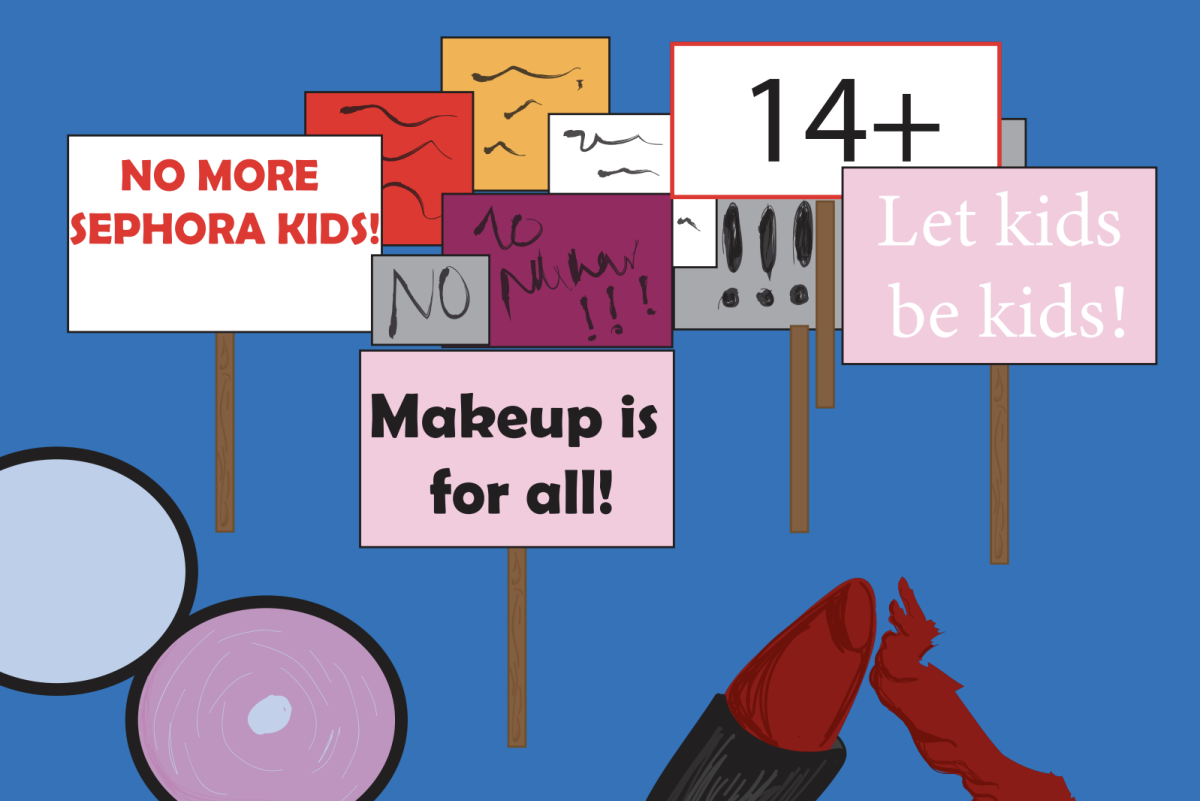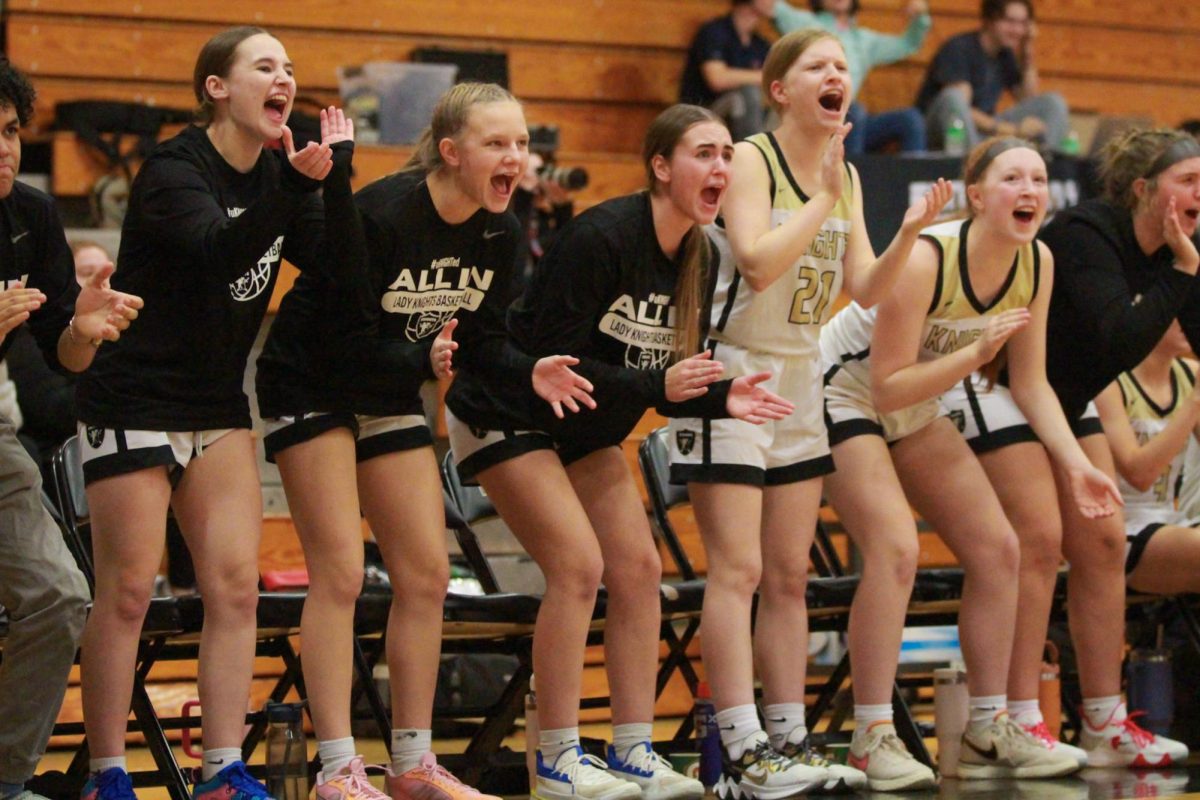 Justin can’t remember where he thought he was going the day he was dropped off at Bridgeway, but that isn’t where he ended up. His first visit, one of many to Bridgeway Behavioral Health Center, was a surprise.
Justin can’t remember where he thought he was going the day he was dropped off at Bridgeway, but that isn’t where he ended up. His first visit, one of many to Bridgeway Behavioral Health Center, was a surprise.
“My parents just dropped me off there one day,” FHN graduate Justin Tainter said. “I didn’t think anything was up until I got there. I was like ‘What the heck, I don’t want to do this crap.’”
Justin’s mother Chrisi Tainter made the choice to send him to Bridgeway during Justin’s freshman year because of a difference she had noticed in Justin’s behavior. She found out about Bridgeway from a friend who had used the program for their daughter and felt it was in Justin’s best interest to get support to stop using marijuana.
“Before he went to Bridgeway, we noticed personality changes,” Chrisi said. “When asked a question, he would get real short, he would have more of an attitude right away. His younger siblings he wouldn’t have any patience with them and he wouldn’t want to spend any time with them.”
But, it took some time before Justin admitted he had a problem and could take full advantage of the help being offered to him.
“You’re in what they call denial, which is the first stage,” Justin said. “You compare yourself with other people. Like, I’d compare myself with people who are doing coke or heroin. I thought, ‘I can smoke weed all day and still be better than them’, but the reality was that I wasn’t the person I used to be and I needed to change.”
BRIDGEWAY
According to Scott Snodgrass, Bridgeway’s Director of Adolescent Services, this is the most crucial step in treatment. One of the first questions a Bridgeway therapist asks a client is ‘Is this drug helping you achieve your goals and dreams?’ The answer to this question can give huge implications to how successful or unsuccessful the treatment will be.
“A lot of kids come in very resistant,” Snodgrass said. “For the kids, it’s not a problem. And if it’s not a problem, there’s no need to ask for help. Many of these kids don’t have an adult in their life who even misses them. Once they see that the adults are consistent and the therapists care about them, things change.”
Sometimes, though, things don’t change. Snodgrass says that many teens feel like using marijuana isn’t a problem for them and aren’t thinking about some of the consequences it can cause, especially legally.
“If you’re 17 or 18 and you get a felony for possession, do you know how hard it is to get a job?” Snodgrass said. “We see it all the time. Somebody wants to get into nursing school; they can’t because they have a felony. Or they want to be a cop; they can’t, they have a felony. Those aren’t things that high school students are thinking about. That felony changes the direction of their life forever, and that’s unfortunate because there’s a lot of smart and talented kids who can’t do what they hoped and dreamed to do because of that.”
Justin began to become more aware of these types of consequences during the time he spent at Bridgeway. During the two days a week he spent there, he participated in two group meetings and one individual meeting with his counselor where they discussed topics like recognizing addiction and signs of relapse. Bridgeway also provides resources and services for the parents of clients in their adolescent program.
“They have a really great support system for parents and not just that, but the counselors are very open,”
Chrisi said. “I could go and discuss different things. When you have a child that does marijuana, it doesn’t just affect the child; it affects the whole family. It changes the whole dynamic for the family. Going through it with the parents actively engaged, it helps the child get through it.”
But, after being at Bridgeway on and off during his first three and a half years of high school, things began to change. Justin began blowing off going to Bridgeway and Chrisi noticed his behavior changing and escalating even more than in the past. Justin’s friend Kali Farrell also noticed this change in behavior at school.
“He would change friends due to weed and how it could get him some,” Kali said. “He would dump some of his friends in order to smoke with other people and have that environment instead. He was mean and aggressive and you could tell he didn’t care about anything. You could see on his face that he wasn’t the same.”
As high school continued, Justin began using other drugs, including cough syrup sophomore year and synthetic marijuana junior year. Chrisi, worried about the changes she was seeing in Justin, decided it was time to try something more drastic and turned to his counselor to discuss different options.
“It had gotten to the point where he was on the marijuana and he wasn’t my child anymore,” Chrisi said. “This wasn’t the child that I knew. You always love your child, but this wasn’t the child I knew. He was a totally different person. He was going to be turning 18 soon, so I talked to his counselor at Bridgeway, and she helped guide me toward residential treatment. She’s the one that recommended Pathways.”
PATHWAYS
If you ask Justin, he can tell you the exact dates he was at Pathways Community Health, an inpatient program in Columbia, MO, even though it was a year ago. January 3 through March 1, 2013.
“It was hell and heaven,” Justin said. “One day is the most amazing day of your life and the next day is the worst, but you can’t do anything about it. You are in a very secluded area with 12 other drug addicts, some of them are heroin addicts, some meth addicts, and you are being told what to do every minute of the day. You can only go to the bathroom when you’re told. Strict rules. No one has their fix, and they want their drugs. Sometimes the house gets really mad and then sometimes we are all connected. There’s a few days where everyone just wanted to cry because they were so happy. It was the most amazing place I’ve been to in my life, but it was the most terrible at the same time.”
According to Virginia Intelisano, a therapist for the adolescent program at Pathways called Navig8, clients in the residential program are given an initial assessment called a CHAT, a comprehensive health assessment, that goes over various parts of their lives. From there, they are given an individual therapist who they meet with one to two times a week. They participate in group education hourly, as well as group therapy twice a day five days a week.
“We have a very holistic approach to our residential program,” Intelisano said. “We have really good wrap-around services. We work on the eight dimensions of wellness — emotional, financial, social, spiritual, occupational, physical, intellectual, environmental — it’s something that Pathways truly stands by.”
Chrisi struggled with the decision to send Justin to Pathways, but, in the end, she feels she made the right choice.
“It was one of the toughest decisions I’ve ever made to send him to that place,” Chrisi said. “It was very tough. Just because no parent wants to see their child go through that. But, I knew, in order for him to survive and in order for him to move on with his life, it was absolutely necessary.”
The Pathways residential program lasts for 60 days; however, Justin was released early because of good behavior. Justin returned home and began to work on finishing high school in the three months that were left before the rest of his class would graduate. Justin participated in FHN’s Credit Assistance Program (CAP), which allows credit deficient students to earn credits by taking online courses during the school year, to finish all the credits he needed to graduate.
“I wasn’t worried about what people would think while I was at Pathways; I mainly just missed being at school,” Justin said. “I missed talking to people in the hallway and talking to people while going from class to class. I was just ready to focus on my grades for the last semester of my high school career. They put me in all CAP classes when I got out. I finished all of those in about a month, so I actually graduated in early or mid April.”
LESSONS LEARNED
When Justin started using marijuana, he never realized how difficult it would be to stop or the extent of the impact it would have on his life.
“It’s all you think about,” Justin said. “Everything you think about in your whole entire life gets shifted and changed in a negative way. It seems like everything isn’t as valued as it was before you did drugs. Drugs were what I needed just like sleep and food, and I put that before everything else because I needed it.”
Justin believes that the time he spent in these programs was absolutely necessary for the changes he’s made. He recommends them to anyone struggling with the same types of issues he was.
“Getting in a program is definitely a necessity,” Justin said. “It’s not like you’re going somewhere and people are telling you to do this and that. You’re there with a bunch of people who are doing the same thing you’re doing and are in the same situation. They are there in the same place at the same time getting the same help, so you have that support. And it’s all about willpower. If you want help, you can get it.”
In the end, Chrisi is satisfied with her decisions to send Justin to these programs and looks forward to what she believes will be a much brighter future for him.
“I got my child back,” Chrisi said. “I got the son that I’ve always known, who is friendly, who has an electric smile, and is polite and willing to help people. I got that person back. He’s a bright and talented boy who has a future that, without drugs, is so much brighter.”




![FHN Holds Prom at Old Hickory Country Club [Photo Gallery]](https://FHNtoday.com/wp-content/uploads/2024/04/Brewer_stopmotion-9-300x200.jpg)
![FHN Students Watch the Solar Eclipse [Photo Gallery]](https://FHNtoday.com/wp-content/uploads/2024/04/4.8.24-solar-eclipse_-300x200.jpg)
![FHN Boys Varsity Volleyball Team Goes Against Troy [Photo Gallery]](https://FHNtoday.com/wp-content/uploads/2024/03/IMG_7545-300x200.jpg)






